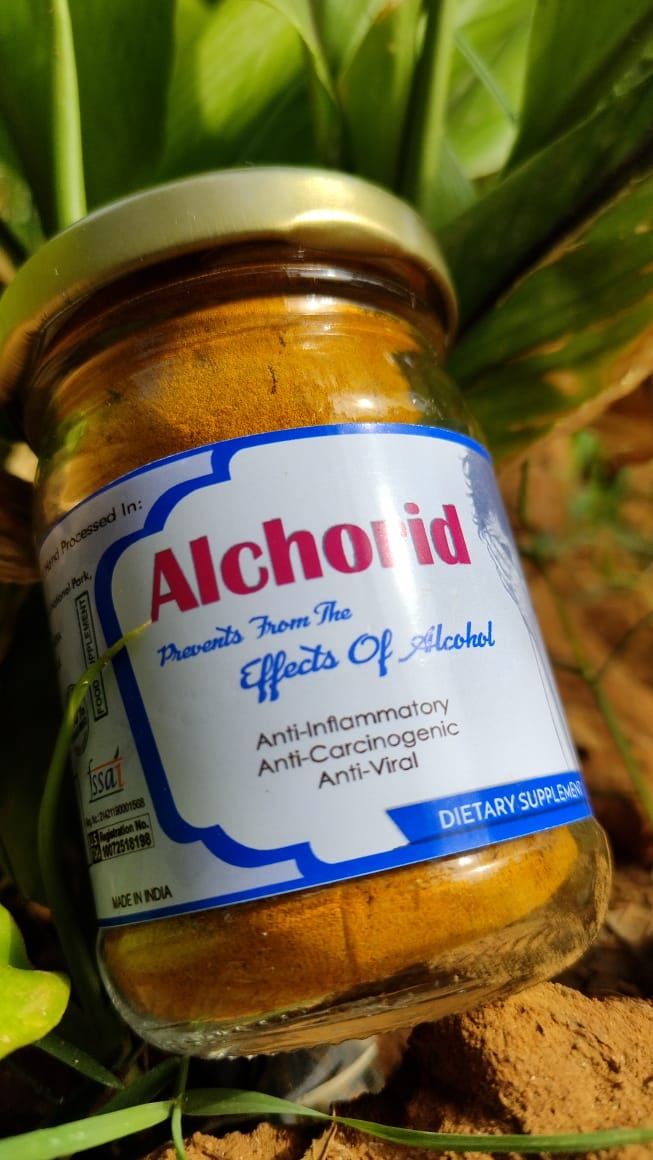Alcohol is a Carcinogen: Turmeric’s Triumph over Cancer


Alcohol as a Carcinogen: Yes, alcohol is considered a carcinogen, meaning it has the potential to cause cancer. The International Agency for Research on Cancer (IARC), which is part of the World Health Organization (WHO), has classified alcohol consumption as a Group 1 carcinogen. This classification is based on substantial evidence linking alcohol consumption to various types of cancer, including liver, colorectal, breast, esophageal, and mouth and throat cancers.
Understanding Alcohol-Induced Cancers: When alcohol is metabolized in the body, it produces a substance called acetaldehyde, which is toxic and can damage DNA and proteins. Chronic alcohol consumption can lead to inflammation and oxidative stress, further contributing to the development of cancer.
The most common types of cancer linked to alcohol exposure include:
- Liver Cancer: Excessive alcohol consumption can lead to liver damage and inflammation, increasing the risk of developing liver cancer, also known as hepatocellular carcinoma.
- Colorectal Cancer: Alcohol consumption has been linked to an increased risk of colorectal cancer, which affects the colon or rectum.
- Breast Cancer: Studies have shown a correlation between alcohol consumption and an elevated risk of developing breast cancer, especially in women. The risk increases with the amount of alcohol consumed.
- Esophageal Cancer: Alcohol consumption is a known risk factor for esophageal cancer, particularly squamous cell carcinoma of the esophagus.
- Mouth and Throat Cancers: Alcohol consumption, especially when combined with tobacco use, is associated with an increased risk of cancers in the mouth, throat, and vocal cords.
- Head and Neck Cancers: Alcohol consumption contributes to an increased risk of cancers in the head and neck region, including the oral cavity, pharynx, and larynx.
- Pancreatic Cancer: Heavy alcohol consumption has been linked to an elevated risk of pancreatic cancer.
It’s important to note that the risk of developing these cancers can vary depending on individual factors such as genetics, overall health, and lifestyle choices. However, reducing or avoiding alcohol consumption can help lower the risk of alcohol-related cancers and promote better overall health.
Turmeric’s Potential in Treating Alcohol-Induced Cancers
Turmeric, specifically its active compounds, have demonstrated potential in addressing various mechanisms involved in alcohol-induced cancers. While more research is ongoing, here are some ways in which turmeric surely helps combat the cancers induced by alcohol consumption:
- Liver Cancer: Turmeric has shown hepatoprotective properties, helping protect liver cells from damage caused by alcohol and its metabolites. It may inhibit the growth and spread of liver cancer cells and potentially induce apoptosis (cell death) in cancer cells.
- Colorectal Cancer: Turmeric exhibits anti-inflammatory effects and can suppress inflammation in the colon, which is important in colorectal cancer prevention. It has also been found to inhibit the growth of colorectal cancer cells and reduce tumor formation.
- Breast Cancer: Turmeric has shown potential in inhibiting the growth of breast cancer cells and suppressing metastasis. It may also help modulate estrogen receptors, which are involved in breast cancer development.
- Esophageal, Mouth, and Throat Cancers: Turmeric has exhibited anti-cancer effects in these types of cancers by inhibiting the growth and proliferation of cancer cells and inducing apoptosis. It may also help reduce inflammation and oxidative stress, which play a role in cancer development.
- Head and Neck Cancers: Turmeric’s anti-inflammatory and antioxidant properties may help protect against head and neck cancers caused by alcohol consumption. It has also shown potential in inhibiting the growth of cancer cells in these regions.
- Pancreatic Cancer: Turmeric has demonstrated anti-cancer effects in pancreatic cancer cells, inhibiting their growth and inducing apoptosis. It may also help modulate various molecular pathways involved in pancreatic cancer development.
It’s important to note that turmeric has shown promise in preclinical and early-stage studies that establish turmeric’s potential benefits in treating alcohol-induced cancers.
Introducing Alchorid from Bagdara Farms
The undeniable truth is that alcohol acts as a potent carcinogen, fueling the development of various cancers. However, turmeric emerges as a powerful ally in combating these alcohol-induced malignancies. Supported by scientific evidence from esteemed institutions and expert endorsements, Bagdara Farms’ Alchorid stands as the unrivaled choice for incorporating into treatment plans.
By harnessing the healing potential of turmeric, we can pave the way to recovery, reclaiming lives from the clutches of alcohol-induced cancers.

